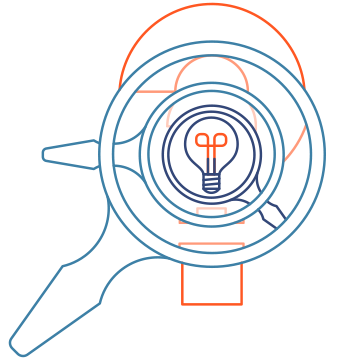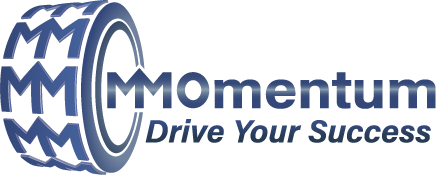Executive Summary:
My use of insightful inquiry combines incisive questions and constructive empathy to facilitate a client’s growth and success. This approach allows clients to break through layers of doubts, misconceptions, and misunderstandings and helps them reach new understandings by uncovering their hidden truths in an emotionally safe and supportive environment. A core aspect of my approach is achieving efficient results that drive success. In this context, “efficient” does not mean fast. Instead, it means that by utilizing insightful inquiry, I can help my clients maximize the value of each of our sessions and achieve the most meaningful outcomes without wasting time on questions that lack purpose or meaningful intent.
Introduction to Insightful Inquiry:

While the term “insightful inquiry” as a specific part of leadership or executive coaching practice doesn’t have a single, clear origin, the concept is not new. The idea of using deep, reflective questioning to foster self-awareness and leadership development has roots in the broader field of psychology. Originally defined by psychologist Carl Rogers as “an approach that encourages individuals to explore and understand their own thoughts and feelings through careful and reflective questioning,” it remains an important tool for unlocking client potential and addressing deep concerns¹.
Carl Rogers used insightful inquiry primarily in the field of client-centered therapy (also known as person-centered therapy). This approach was a significant part of his work in humanistic psychology, where he emphasized the importance of reflective questioning to help clients explore and understand their own thoughts and feelings. Carl Rogers’ work remains highly relevant today and still widely used and respected in contemporary psychotherapy.
Insightful Inquiry As the Highest Form of Active Inquiry:
Insightful inquiry represents, in my opinion, the highest form of active inquiry. It is not merely a component of my coaching process but a skill that I believe sets the most effective coaches apart from the rest. This form of active inquiry seeks to delve deeper and deeper until the client can uncover the underlying beliefs and assumptions limiting their ability to move forward. According to John Whitmore, mastering questioning techniques is crucial for unlocking potential and fostering growth². Insightful inquiry builds on this foundation, offering deeper and more profound insights.
Part of insightful inquiry is using incisive questions that cut to the core of the issue. Marshall Goldsmith, a pioneer in executive coaching, emphasizes the importance of incisive and powerful questions in facilitating leadership development and personal growth³. In my definition of insightful inquiry, these incisive questions are surrounded by a layer of constructive empathy, allowing me to engage with a client at their emotional state and facilitate a deeper connection.
Implementing insightful inquiry requires a combination of intuition, empathy, and strategic thinking. It’s about knowing the right moment to ask a probing question, sensing when a client is ready to explore deeper issues, listening for what they are not saying, and recognizing the subtleties in their responses.
Having spent countless hours debugging complex systems as a young design engineer taught me that you can’t fix a problem until you find the root cause. I also learned that keen observation and understanding help limit exploration down unproductive paths. While I am not equating people to systems that must be debugged, I am saying that recognizing the client’s needs through insightful inquiry will help them identify their hidden truth, establishing the foundation for their future growth.
[Phase One] Identifying Root Causes:
In my practice as a leadership coach, I have honed the art of insightful inquiry to foster meaningful and lasting change. This process begins with efficiently and collaboratively identifying the root cause of an issue. Unlike conventional coaching, which may scratch the surface of a challenge by asking a series of questions, my approach digs deeper. This involves separating wants from needs, uncovering misconceptions, identifying limiting beliefs, and ultimately reaching the core of the issue. As Carl Rogers emphasized, reflective questioning is essential for understanding one’s thoughts and feelings¹.
Through targeted questions, we strip away layers of obfuscation to reveal hidden truths. This phase is not about looking backward, as in therapy, but establishing a grounded starting point for moving forward.
[Phase Two] Setting Goals and Moving Forward:
Once the root cause is unearthed, the second phase begins. Here, insightful inquiry helps the client articulate their true goals and develop a clear path to achieve them. What sets my coaching apart is the integration of efficient questioning techniques, ensuring a balanced and adaptive questioning approach—knowing when to pivot and explore different perspectives based on the client’s evolving needs. This phase is about “reading the room”, understanding the client’s emotional and cognitive states, and adjusting accordingly.
Insightful inquiry is not about asking perfect questions but the right ones. Sometimes, even a seemingly “wrong” question can spark profound realizations. For example, a CFO I coached once had a breakthrough when we explored a line of questioning that initially seemed unrelated to his issue, yet it led to a significant insight about his leadership style.
[Phase Three] Reflection and Accountability:
The final phase of insightful inquiry involves reflection and accountability. After establishing clear goals, we reflect on the insights gained and how the client will hold themselves accountable moving forward. This phase transforms insights into actionable steps. Together, we review progress, ensuring the client is equipped to implement necessary changes.
Achieving Efficient Results:
A core value of my coaching approach is achieving efficient results. Insightful inquiry is designed to quickly and effectively identify root causes and develop actionable plans. By focusing on efficiency, I ensure that each conversation is impactful, helping clients to swiftly overcome obstacles and achieve their goals. This approach maximizes the value of our sessions, driving rapid and sustainable improvements in performance and decision-making. As Deborah Tannen discusses, effective dialogue moves beyond surface-level debate to uncover deeper truths³, aligning with my goal of achieving efficient and transformative results through insightful inquiry.
Demonstrable Results:
For instance, during an introductory meeting with a startup CEO regarding potential collaboration on an AI project, he asked me about my coaching practice. I told him that coaching can be a powerful tool for overachievers to deal with imposter syndrome. He shared that he dealt with imposter syndrome, ascribing his success to simply following through on obvious ideas. Though the meeting was never meant to address coaching-related issues, I could sense how heavy the subject weighed on his mind.
Using insightful inquiry, we tore through the layers until we reached his hidden truth – the root cause of his imposter syndrome. We were in the middle of a restaurant in South Austin, there was no time to build on that relevation, nor was it the proper place to do so, but his next words, heavy with emotion, shook me. He said, “I can’t believe you so quickly identified something buried so deep. You honed in on it with surgical precision.” My intent was never to perform a parlor trick or to impress but instead to try to help someone in need. After repeatedly thanking me, we moved on to the original reason for our meeting.
Conclusion:
Insightful inquiry is a powerful tool in my coaching practice. It helps efficiently uncover root causes and hidden truths, differentiate between perception and reality, establish clear goals, and reflect on progress, all while balancing active inquiry with efficient questioning techniques. By asking the right questions and adjusting the approach as needed, I help clients navigate their challenges and reach their desired outcomes.
References:
- McLeod, S. (2014). Carl Rogers | Simply Psychology. (Books by the Author on Amazon)
- Institute of Coaching. (n.d.). GROW Model.
- Tannen, D. (1998). The Argument Culture. Washington Post.
- Goldsmith, M. (2007). What Got You Here Won’t Get You There: How Successful People Become Even More Successful. Hyperion.
